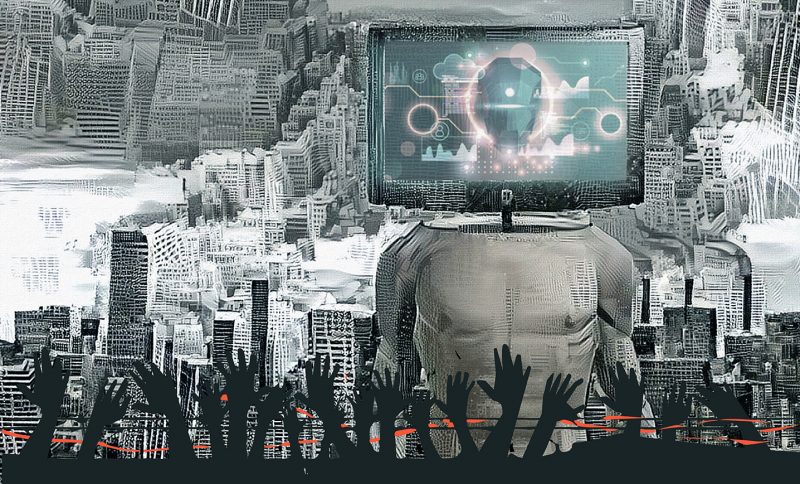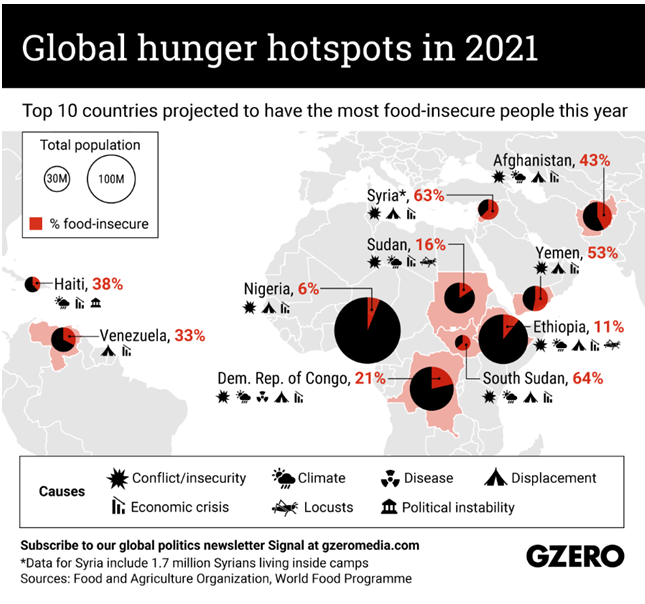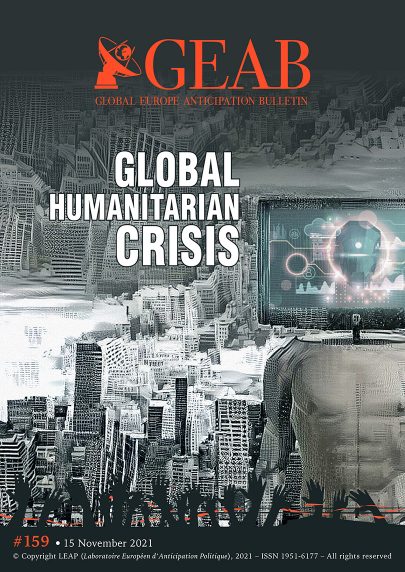GEAB 159

There is no doubt that the collective unconscious of the West feels threatened by an overpopulated humanity. Everything contributes to this diffuse feeling[1] :
. The post-pandemic return to life and street crowds suddenly made unbearable by comparison with the calm of the lockdown.
. The highlighting of a non-Western world ten times more numerous than ‘us’, questioning our societies, our identities, our models.
. The environmental obsession having turned humans into systemic enemies of our good Mother Nature.
. The existential crisis linked to the questioning of the humans’ usefulness, neither workers (because of technology) nor consumers (because of pollution).
. The disappearance in the West of social and humanist thinking in favour of environmental and naturalist thinking.
. The growing difficulties of our social systems, crushed under the weight of a 30-year liberal disinvestment, the ageing of the Baby-boomers, and the additional costs linked to the pandemic and its consequences (unemployment, impoverishment, physical and psychiatric illnesses, drugs, etc.).
. The gradual distancing from the world brought about by the rise of borders, the blurred relationship to reality of humans connected to the virtual world, and the control of information, re-launching the classic process of dehumanisation of the ‘Others’, these swarming and threatening faceless masses who come from elsewhere.
. The trans-humanist totalitarianism that is taking hold.
. The fantasies of degrowth that accompany all of this and imply, without daring to say it, a demographic decline to begin with…
Ambient pessimism feeds both on the feeling of growing exasperation with the Others and on the horror that arises from the prospect of the consequences of this feeling, i.e. the gradual acceptance of letting people die (social aim), or even of making them die (geopolitical aim).
We anticipate that over the next 5 to 10 years, hundreds of millions of people will disappear prematurely from the face of the earth in various ways. This great human depletion is in the making as much in the collapse of social systems (discussed below) as in the rise of geopolitical tensions (discussed in the next article).
Food insecurity, hunger
In 2015, the number of deaths per year was estimated at 59 million. An Oxford University study[2] calculates that life expectancy will fall by at least 6 months on average in 29 countries (mainly Europe, the US, and Chile) between 2019 and 2020. Covid is of course a factor in this impressive collapse, but it does not explain everything. For example, the fact that the USA and Lithuania have the highest falls (2.2 and 1.7 years lost in men respectively!) is not explained by a higher incidence of Covid in these populations.
After declining over the past 20 years (largely due to the eradication of poverty in China), global hunger has been on the rise since 2016, affecting around 10% of the world’s population.[3] As early as June 2020, the United Nations raised the alarm, calling for immediate action to prevent “hundreds of millions” of people (we are already there!) from dying of hunger.[4] More recently, there has been talk of 320 million people having lost access to their food needs.[5] The countries affected are Yemen, Syria, Afghanistan, but also Congo, Honduras, India[6], Brazil and South America…[7]

Figure 1 – Hunger hotspots in the world. Source: GZERO, 2021
According to some calculations, nearly 8 million people have died of hunger since the beginning of the year. By comparison, Covid has killed 5 million people in almost 2 years. But Covid kills indiscriminately, while hunger only kills the poor…
Far be it from us to suggest that our leaders are not sincerely trying to deal with the problem. But they do not hold the purse strings. For example, President Biden boasts about the $10 billion he has managed to find in order to fund a multi-year “Feed the Future” programme to fight world hunger.[8] 10 billion, who are we kidding? Meanwhile, the financial markets are churning out not tens, not hundreds, but thousands of billions… on the same scale as government debts. What can our politicians do in this context?
In the United States, thanks to social aid, the number of people suffering from food insecurity (10.5%) has apparently not increased between 2019 and 2020. But the question remains for 2021, when the supply chain crisis is becoming apparent. Panicked people are emptying shop shelves and stockpiling food at home, exacerbating the problem.[9] Inflation, supply disruptions and food deserts[10] can combine to create a humanitarian disaster in “the richest country in the world”.
In Europe, food insecurity is very unevenly distributed: between 3.5% and 20% depending on the country, with an average of around 7% despite the continent’s wealth and social safety nets.
And the future is bleak. The press unanimously anticipates a worsening of the food crisis, which is of course systematically associated with the climate crisis[11], against which nothing can be done except to reduce the population or impoverish it in order to finance hypothetical technological futures…
The great resignation, suicides, drugs Login

The First World War was the result of unsurpassable alliances that have become anachronistic. The alliance with America is both outdated and unsurpassable in the 21st century: outdated because the [...]
The IMF has already started to revise downwards its 2021 growth projections: for the US (from 7 to 6%), Asia (from 7.6 to 6.5%), the Eurozone (from 5.4 to 5%), [...]
The Covid crisis has put all central banks to the test, especially the European and American ones, which carry a significant share of the weight of the world economy on [...]
A new generation of traders has arrived in 2020 during the successive lockdowns. Although it does not change the rules of the game in the financial markets, it reveals a [...]
Bitcoin - Salvad'orisation Bukele, the young president of San Salvador, is rubbing his hands together at the rise in value of Bitcoin, which he adopted as his country's official currency [...]

Comments